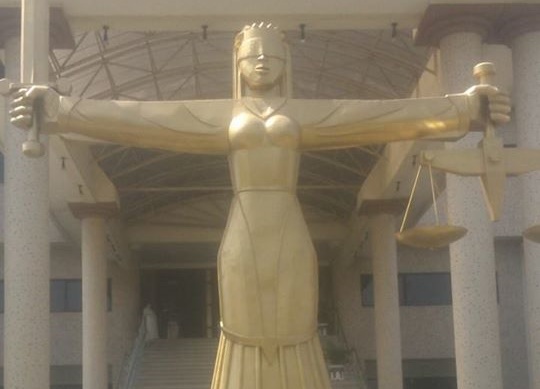Spread the love
HRH Ozigizigi (Late), The legendary king who bested the drum for the historic war of Ajinomoh with the Nupes who spearheaded the caliphate jihadist attack on our territories.
Chief Ozigizigi Opoh Of Obehira, it is a clear fact that the reputation of a man will continue to speak for him even after the person quits the world, His Enduring footprints, unique zeal in leadership as well as his vast experience remained the fountain of his reputation that endeared him to the early white men that came into Ebiraland as far back as 1898. Chief Ozigizigi Opoh, the son of Adayi Otaru and the grandson of Adayi Adive was born in March, 1842 and died on Saturday 3rd March, 1962 on the throne of Otaru Idu of Obehira.
Chief Ozigizigi Opoh was a well known revolutionary leader in Ebira land during the time of British administration, most particularly during the popular Oivo Arimoh Uprising in 1924. At the onset of European administration in Ebiraland, Ozigizigi became a much known leader among others due to his cast administrative experience. Chief Ozigizigi belongs to Aviye sub-clan in Eyire Clan of Okovi extraction of Okengwe.
He was a great archetype in Ebira historical diary whose active role and wisdom got him the liberal chance to have excellent contact with the British Administrators which earned him the opportunity to serve with them at the Royal Niger Company at Lokoja before it was later moved to Ikiram. He also worked with them in the Ashanti War II in 1900 and later in Arochuku in 1902.
Chief Ozigizigi who had travelled far and wide and had served with the British Officers acquired much experience and he later returned home to work with the then Attah Omadivi Abonika, who was the first District Head of Ebira Country and later became the over all traditional ruler among his people.
HIS MARITAL LIFE
Chief Ozigizigi’s life was no difference from olden days practice, His marital life was surrounded with polygamy, wives from both within and outside Ebira territories to show affluence. He married from different parts of Ebiraland which i.e. Eganyi, Okunchi in adavi LGA, Ohieka in Ihima, Okene, Okengwe and even from a place called Ogane after Iduje. It is pertinent to mention here that during his days, the wealth of an individual was measured by the number of wives he married, the number of children he gave birth to, number of animals owned by him as well as the number of people that fed and lived under him, that’s why opulent people in those days married plenty wives and had plenty children. However, His wives were mostly addressed by their family name or by the name of the places which they were married from, it is cogent to say that this tradition is observed in most polygamous homes as part of Ebira custom. (Had 12 wives & 60children.
Grab Your Copy For His Giant Strides.
Spread the love





